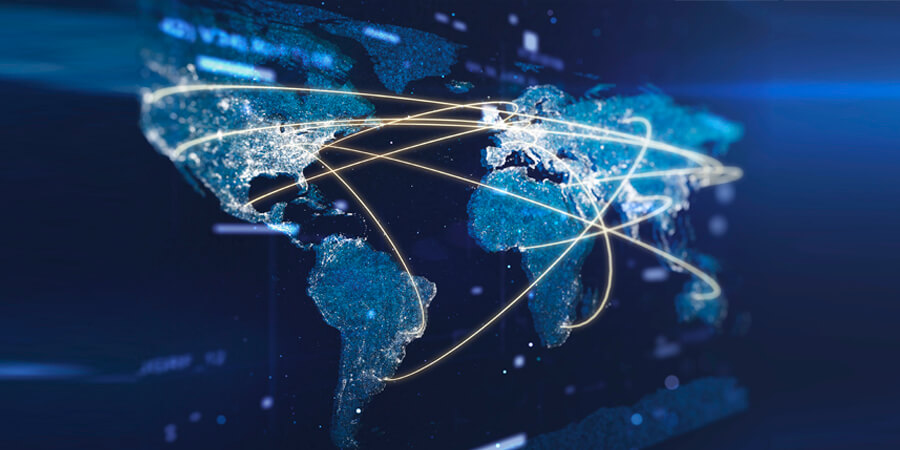Anúncios
From the invention of the wheel to the birth of the internet, game-changing inventions have been instrumental in shaping the way we live our daily lives. This post delves into some of these ground-breaking advancements that have not only altered our world but have also set the pace for future innovations. Each one is a testament to human ingenuity and the relentless pursuit of progress.
Imagine a world without electricity, cars, computers, or even a simple ballpoint pen. These are just some of the numerous creations that have revolutionized our daily life. However, these life-altering inventions did not appear out of thin air. They are the result of years, sometimes decades, of hard work, perseverance, and the relentless spirit of inventors who dared to dream big and challenge the status quo.
Anúncios
In the forthcoming segments, we will explore these marvels of human innovation that have completely transformed our world. From the Industrial Revolution to the digital age, we will journey through history, witnessing the profound impact these inventions have had on society, economy, and the very fabric of our existence.
We will look beyond the well-known inventions like the steam engine or the telephone, shedding light on lesser-known but equally significant innovations. Unfolding the fascinating stories behind their creation, we aim to inspire and ignite the flame of curiosity in you.
Anúncios
As we unravel the intricate tapestry of these revolutionary inventions, we hope you gain a deeper understanding of how they have molded our world and appreciate the genius behind them. We invite you to join us on this enlightening journey of discovery, as we celebrate the human spirit of invention that continues to push the boundaries of what is possible.
The Internet: A Catalyst for Global Connectivity
The Internet has undeniably revolutionized our daily lives. Its introduction has enabled the instant transmission of information across the globe, fundamentally transforming how we communicate, access knowledge, conduct business, and even socialize. From sending emails to streaming high-definition video, the internet has become a central pillar of modern existence.

Its origins date back to the 1960s, with the creation of ARPANET (Advanced Research Projects Agency Network), developed by the U.S. Department of Defense to facilitate communication between computers across research institutions. What began as a military and academic project quickly evolved into something far more expansive. By the 1990s, the internet entered the public sphere, becoming accessible to ordinary users and ushering in the digital age.
Today, the internet supports a multitude of services that permeate nearly every aspect of life. It enables online shopping, digital banking, cloud computing, e-learning platforms, social media networks, and video conferencing tools—all of which were once inconceivable on such a global scale. The COVID-19 pandemic further emphasized its importance, as millions turned to the internet for work, education, and connection during lockdowns.
One of the internet’s most powerful attributes is its ability to level the playing field by democratizing access to information. With a simple search, users anywhere can tap into vast resources of knowledge, collaborate globally, or even start businesses from their homes. However, this connectivity also brings challenges, such as cybersecurity risks and the digital divide, which separates those with internet access from those without.
Nevertheless, the internet remains one of the most groundbreaking inventions of the modern world—an ever-evolving tool that has not only connected people and ideas but also catalyzed entire industries and societal shifts. Its influence continues to grow, redefining how we live, work, and interact in the 21st century.
Decentralization of Information
One of the most significant impacts of the internet is the decentralization of information. Pre-internet, information was typically controlled and disseminated by specific entities. However, the internet has democratized information, making it accessible to anyone with an internet connection. This has ushered in an era of unparalleled access to knowledge, influencing everything from education to political landscapes.
Smartphones: An Extension of Ourselves
Another invention that has fundamentally changed our world is the smartphone. These devices have essentially become extensions of ourselves, with the average person spending around three hours a day on their smartphone.
The first smartphone, the Simon Personal Communicator, was introduced by IBM in 1992. However, it was Apple’s introduction of the iPhone in 2007 that truly kickstarted the smartphone revolution.

Mobile Computing and Connectivity
Smartphones have become the cornerstone of modern life, seamlessly combining the functionality of multiple devices into a single, portable unit. Acting as a phone, camera, computer, GPS navigator, and even a personal assistant, the smartphone represents the epitome of mobile computing and connectivity. With just a tap or swipe, users can communicate, navigate, work, shop, and monitor their health—anytime and anywhere.
This convergence of technologies has transformed countless industries and reshaped everyday routines. In transportation, smartphones have fueled the rise of ride-sharing platforms like Uber and Lyft, replacing traditional taxi systems and introducing real-time tracking, cashless payments, and driver ratings. Navigation apps such as Google Maps and Waze have revolutionized how people travel, offering traffic updates, alternative routes, and location sharing with remarkable precision.
Retail has also been dramatically altered. Mobile commerce—or m-commerce—has empowered consumers to shop on-the-go, compare prices, and access promotions directly from their devices. Retailers now design mobile-friendly websites and apps to cater to this shift, while mobile payment systems like Apple Pay, Google Wallet, and contactless credit cards make transactions faster and more secure.
Healthcare has similarly evolved through mobile technology. Smartphones serve as platforms for health monitoring apps that track everything from heart rate and sleep patterns to fitness goals and medication reminders. Telemedicine has become increasingly accessible, allowing patients to consult with doctors through video calls, reducing the need for in-person visits and expanding access to care, especially in remote areas.
Furthermore, the integration of cloud services means that data is no longer confined to one device. Users can begin a task on their phone and continue it on a tablet or computer seamlessly. This flexibility enhances productivity and supports the modern, mobile lifestyle.
Ultimately, smartphones have not only enhanced connectivity but also fostered a culture of immediacy and convenience. As mobile technology continues to evolve—with advancements in 5G, augmented reality, and artificial intelligence—the role of smartphones in our lives will only deepen, continuing to blur the line between the digital and physical worlds.
The World Wide Web: Information at Our Fingertips
While the internet provided the backbone for global connectivity, it was the creation of the World Wide Web in 1989 by Tim Berners-Lee that made information easily accessible to the general public.
The Birth of a New Era
The creation of the World Wide Web in 1989 by Tim Berners-Lee marked a defining moment in human history. While the internet provided the backbone for connectivity, it was the World Wide Web that made this vast network truly accessible to the general public. By introducing a system of hyperlinks, web pages, and URLs, the Web allowed people to browse, navigate, and contribute to online content with unprecedented ease.
This breakthrough effectively democratized the internet. Suddenly, individuals, organizations, and businesses could create and host their own websites without needing extensive technical knowledge. Information, once confined to libraries and academic journals, became available at the click of a button. The Web became a global platform for education, communication, and creativity.
As the Web evolved, it gave rise to some of the most significant digital transformations of our time. Social media platforms emerged, allowing people from across the globe to connect, share ideas, and build communities. E-commerce exploded, with companies like Amazon and eBay changing how consumers shop and do business. Blogs, forums, and video-sharing sites empowered individuals to become creators and influencers, shifting the dynamics of media consumption.
In essence, the World Wide Web laid the foundation for today’s digital world. It catalyzed a new era where information flows freely, knowledge is widely distributed, and people have a voice on a global stage. From revolutionizing industries to reshaping personal interactions, the Web has altered nearly every aspect of modern life.
As we continue to innovate on this digital frontier, the legacy of the World Wide Web remains clear—it didn’t just change how we use the internet; it changed how we live, learn, and connect with the world.
Artificial Intelligence: A Leap towards Automation
Artificial Intelligence (AI) has emerged as one of the most transformative inventions of the modern era, ushering in a new age of automation and intelligent systems. At its core, AI refers to the simulation of human intelligence by machines, enabling them to perform tasks that typically require human cognition—such as learning, reasoning, problem-solving, perception, and language understanding.
The impact of AI spans across multiple industries, fundamentally altering how businesses operate and how people interact with technology. In healthcare, AI algorithms are revolutionizing diagnostics by analyzing medical images and identifying patterns that may be imperceptible to the human eye. Tools powered by AI assist doctors in predicting disease progression, personalizing treatment plans, and even developing new drugs faster through predictive modeling.
In the financial sector, AI is being used for everything from fraud detection to automated trading. Machine learning algorithms process vast amounts of financial data in real-time, identifying suspicious transactions, evaluating credit risk, and executing trades with high precision and speed. Chatbots and virtual assistants are also enhancing customer service, providing 24/7 support and personalized financial advice.
Manufacturing has also embraced AI through the integration of smart robotics and predictive maintenance systems. AI-driven robots can work alongside human employees, handling repetitive or hazardous tasks with efficiency and precision. Predictive analytics enable factories to anticipate equipment failures before they happen, reducing downtime and optimizing productivity.
Beyond industry-specific applications, AI has made its way into everyday life. Voice assistants like Amazon’s Alexa, Apple’s Siri, and Google Assistant use natural language processing to understand and respond to user commands. AI also powers the recommendation engines behind platforms like Netflix, YouTube, and Spotify, tailoring content to individual preferences and enhancing user engagement.
Despite its numerous benefits, AI also raises important ethical and social questions—such as concerns over job displacement, algorithmic bias, and data privacy. As AI systems become more autonomous and influential, ongoing dialogue and responsible development are crucial to ensure they align with human values and serve the greater good.
In essence, Artificial Intelligence represents a monumental leap toward automation and intelligent decision-making. It is not just reshaping technology—it’s redefining the relationship between humans and machines, laying the groundwork for a smarter, more efficient future.
Impact on Everyday Life
While AI’s implications may seem distant and abstract, it is closer to our daily lives than we realize. From voice assistants like Siri and Alexa to recommendation algorithms on Netflix and Amazon, AI has permeated our everyday activities.
Blockchain Technology: A Revolution in Trust
Initially introduced as the technology underpinning Bitcoin, blockchain technology has implications far beyond cryptocurrencies. Its ability to provide a decentralized, immutable ledger has potential uses in various sectors, including finance, supply chain, and healthcare.
Enhanced Security and Transparency
The most significant advantage of blockchain technology is its inherent security and transparency. As a decentralized system, it is resistant to tampering and fraud, providing enhanced trust in transactions. Moreover, its transparency ensures accountability, making it a revolutionary technology in building trust.
In conclusion, these game-changing inventions have transformed our world by fundamentally altering how we interact with information and each other. As technology continues to evolve, it is exciting to consider what revolutionary inventions await us in the future.
- The Internet: Allowed for the instant transmission of information worldwide.
- Smartphones: Combined the functionality of several devices into one.
- The World Wide Web: Made information easily accessible to the general public.
- Artificial Intelligence: Impacted various sectors, including healthcare, finance, and manufacturing.
- Blockchain Technology: Provided a decentralized, immutable ledger with potential uses in various sectors.
Conclusion
In conclusion, it’s apparent that inventions have revolutionized daily life, acting as game-changers that have profoundly transformed our world. These innovations, encompassing various fields, have undeniably changed how we live, work, and interact. The Internet has expanded our reach globally, facilitating instant communication and access to a wealth of information. Smartphones have made technology portable, enabling us to stay connected on the go. The light bulb has illuminated our world, extending productivity into the night. Furthermore, advancements in medical technology, such as the invention of penicillin, have saved countless lives and improved our overall health. In transportation, the automobile’s creation has increased our mobility, shrinking our world. As we appreciate these ground-breaking inventions, we can’t help but anticipate what the future holds. With technological advancements accelerating, we are bound to witness even more life-altering inventions. Therefore, it’s essential to foster a culture of innovation, encouraging and nurturing creativity for the betterment of our world. No doubt, the impact of these inventions is far-reaching, underlining the power and potential of human ingenuity.



